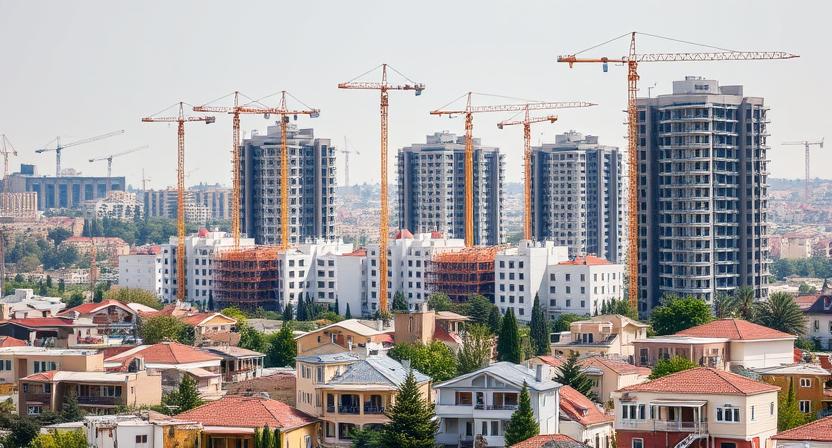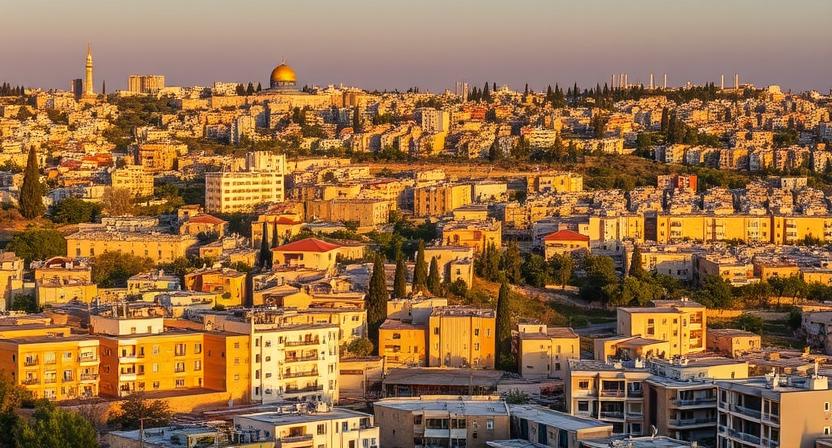Jerusalem Property Investment Opportunities: A Strategic Real Estate Insight
jerusalem property investment opportunities prospects are attracting more and more investors looking to diversify their portfolios while maintaining long-term stability. The city is now a popular destination for real estate investment due to its rich historical significance and central location. Jerusalem provides a variety of options for both experienced and novice investors, ranging from opulent flats in contemporary areas to historic structures in the Old City.
The Economic Appeal Behind Real Estate in Jerusalem
Jerusalem is more than just a center of culture and religion. With growing urbanization and infrastructure, it also serves as an economic engine in Israel. Large sums of money have been set aside by the local government to improve public services, housing, and transportation. Real estate is a good way to preserve and grow capital because of these characteristics, which have a direct impact on property value.
Urban Development Creates Strong Investment Foundations
Large-scale proposals for urban renovation have emerged in central and eastern Jerusalem in recent years. Connectivity and accessibility are being improved by initiatives including business zone revitalization and light rail expansion. Pockets of in-demand real estate have been produced by these changes, making them perfect for medium- to long-term investment planning.
Why Foreign Investors Are Turning Toward Jerusalem
Emerging markets with robust regulatory frameworks and steady appreciation are frequently investigated by international investors. Jerusalem is unique in both respects. It is simpler for foreigners to buy and register assets in Israel because of the country’s strong legal protections for property ownership. International students, diplomats, and housing requirements associated with tourism also contribute to the continued high rental demand.
Jerusalem Property Investment Opportunities in the Luxury Segment
Both wealthy locals and international investors are showing interest in Jerusalem’s upscale property market. Rehavia, Mamilla, and Talbiya are a few neighborhoods that exhibit a blend of modern architecture with old charm. Due to high demand and limited supply, these places have great resale value and reliable rental returns, but they also fetch premium pricing.
Long-Term Rental Demand in the City Center
Both furnished and unfurnished rental properties are still in high demand in the city center. A steady stream of tenants is supplied by professionals, students, and temporary guests. Low vacancy rates and steady profits are provided by properties close to business districts and colleges. They are therefore perfect for investors who are looking for assets that will provide income. .
The Role of Diaspora Investment in Shaping the Market
As a cultural bond or as a means of future residency, diaspora Jews from North America and Europe frequently buy real estate in Jerusalem. Their purchasing power strengthens the market, particularly when there are changes in the world economy. Developers are being pushed to increase their options in that market since many people prefer new construction with contemporary facilities.
Tax Benefits and Incentives for Real Estate Investors
Israel provides tax breaks to both newcomers and long-term citizens. Depending on their status and use, certain real estate transactions could qualify for exemptions or reduced purchase taxes. Gaining knowledge of these choices can lower entry costs and increase return on investment.
Jerusalem Property Investment Opportunities in Revitalized Areas
New communities like Baka and Arnona are being rapidly upgraded, making them ideal areas for appreciation. These neighborhoods have a good blend of development potential, affordability, and livability. These regions provide easy access and significant potential for investors priced out of central locations.

Risks to Consider Before Investing
Despite the benefits, prospective investors should think about geopolitical issues, property management difficulties, and currency changes. Working with local real estate and legal experts who are aware of the subtleties of the Jerusalem real estate market is crucial. Their advice can guarantee legal compliance and help steer clear of typical hazards.
Impact of Infrastructure Projects on Property Prices
Property values in the area are already being impacted by ongoing infrastructure developments, such as new residential complexes and light rail extension. Previously unpopular areas are now receiving more attention. Investors can get ahead of the curve by keeping a careful eye on these events.
Financing and Mortgage Availability for Foreign Investors
It is possible to get a mortgage in Israel as a non-resident, although there are restrictions. Foreigners can borrow up to 50% to 60% of the value of their property from the majority of Israeli banks. Documentation requirements are stringent, and interest rates fluctuate. It is strongly advised to collaborate with a mortgage broker who has experience dealing with international clients.
Jerusalem Property Investment Opportunities for Retirement Planning
Jerusalem real estate is often seen by purchasers as a component of a larger retirement strategy. Having real estate in a city with cultural significance provides both financial and emotional stability. These assets can be long-term wealth preservation strategies, whether they are used seasonally or rented out for revenue.
Property Management and Maintenance for Non-Residents
There are difficulties in managing real estate from overseas. Employing a nearby property management business guarantees that rentals are rented out, upkeep is completed on schedule, and rules are followed. Bill payment, repairs, and even tenant screening are just a few of the many services offered.
The Influence of Tourism on Real Estate Strategy
The demand for homes in Jerusalem is greatly influenced by tourism. Platforms for short-term rentals flourish in the city, especially during busy times of the year. Permitted zones nevertheless have significant revenue potential, even though controls are in place to prevent over-commercialization. Before exploring short-term rental schemes, investors need to be aware of local regulations.
Jerusalem Property Investment Opportunities Compared to Tel Aviv
Jerusalem provides a more stable and culturally motivated real estate climate, even though Tel Aviv is still Israel’s business hub. real estate is less erratic, more reasonably priced across the board, and supported by robust long-term rental demand. Because of its steadiness, it appeals to conservative investors who value asset security over quick turnover.
Sustainable Building Trends Affecting New Projects
Green building requirements are becoming more and more important in Jerusalem’s recent developments. Eco-friendly materials, smart home integration, and energy-efficient systems are increasingly being promoted. Improved marketability and lower running expenses, particularly among younger renters, are advantageous to investors.
Navigating Legal Procedures and Land Ownership Laws
A thorough legal evaluation is necessary for real estate purchases in Jerusalem. Verification is required for zoning regulations, land registration, and title clarification. Compliance with local and federal legislation is ensured by working with a local lawyer. To make ownership structures simpler, foreigners can also think about creating local legal organizations.

Market Projections for the Next 5 Years
Due to population growth, a shortage of available homes, and continuous urban expansion, experts predict that Jerusalem’s real estate market will continue to expand. The city’s inherent demand is still a strong stabilizing force, even though outside variables like international markets and politics can affect patterns.
Conclusion: A Strategic Move for Global Investors
Investigating real estate investment options in Jerusalem offers more than just financial potential; it also provides access to a market based on urban change, legal stability, and cultural relevance. Jerusalem offers a special blend of potential and resiliency, regardless of your goals—rental revenue, financial appreciation, or personal use.
